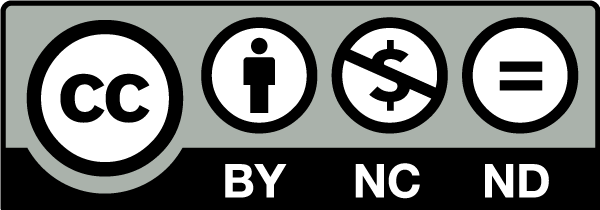Cognitive and Constructional Analysis of the Act of Offering
DOI:
https://doi.org/10.13136/2281-4582/2014.i4.390Keywords:
linguistics, English, pragmatics, speech actsAbstract
It is undeniable that illocutionary meaning is conveyed through grammatical devices, which is tantamount to saying that it forms part of grammar and that grammatical patterns must receive due consideration in speech acts research. Yet, many illocutions convey meaning that often contrasts with the sentence type (e.g., Hands up! vs. Drink more coffee!), which is indeed utilized to instantiate different speech acts. In addition, the indirectness of illocutions is quickly and automatically derived by the interlocutors, whose capacity is ascribed to inferential processes; yet, scholars have not identified so far the inferential patterns that are activated in the derivation of implicit meaning nor the cognitive motivation of speech acts at discourse level. As insightful as they are, neither of the two strands are able to offer a full-fledged analysis of the interplay between the linguistic structures that speakers utilize to convey their communicative intentions and the mental paths that guide speakers in the verbalization process and hearers in their interpretive tasksReferences
Bach, Kent, and Robert M. Harnish. Linguistic Communication and Speech Acts. Cambridge Mass.: The MIT Press, 1979.
Baicchi, Annalisa. “Constructing Meaning through Grammar.
Observations on Constructional Complexity”. Studi di Linguistica e Letteratura. Eds. Marcella Bertuccelli Papi et al. Pisa: Felici, 2008. 447-63.
---. “Metaphoric Motivation in Grammatical Structure”. Motivation in Grammar and the Lexicon. Eds. Günter
Radden and Klaus-Uwe Panther. Amsterdam, John Benjamins: 2010. 149-70.
---. On Acting and Thinking. Studies bridging between speech acts and cognition. Pisa: ETS, 2012.
---. “Speech acts as high-level situational cognitive models”. Par les siècles et par les genres. Eds. Elisabeth Schulze-Busacker and Vittorio Fortunati. Garnier, Paris: 2014. 23-50.
---, and Francisco Ruiz de Mendoza. “The Cognitive Grounding of Illocutionary Constructions”. Textus XXIII:
3 (2010). 543-63.
Butler, Christopher S. “The Lexical Constructional Model: Genesis, Strengths and Challenges”. Deconstructing Constructions. Eds. Christopher S. Butler and Javier M. Arista. Amsterdam: John Benjamins, 2009. 117-52.
Dik, Simon. The Theory of Functional Grammar. Volumes I and II. Berlin: Mouton de Gruyter, 1989/1997.
Croft, William. “Speech act Classification, Language Typology and Cognition”. Foundations of Speech Act Theory. Ed. Savas L. Tsohatzidis. London: Routledge, 1994. 460-77.
Gibbs, Raymond Jr. “Speaking and Thinking with Metonymy”. Metonymy in Language and Thought. Eds. Klaus-Uwe Panther and Günter Radden. Amsterdam: John Benjamins, 1999. 61-76.
Givón, Talmy. Syntax. A Functional-Typological Introduction. Amsterdam: John Benjamins, 1990.
Goldberg, Adele Eve. A Construction Grammar Approach to Argument Structure. Chicago: University of Chicago Press, 1995.
---. Constructions at Work. Oxford: Oxford University Press, 2006.
Grice, Paul. “Logic and Conversation”. Speech Acts. Eds. Peter Cole and Jerry L. Morgan. New York: Academic Press, 1975. 41-58.
Halliday, Michael A.K., and Christian Matthiessen. An Introduction to Functional Grammar. 3rd edition. London: Arnold, 2004.
Leech, Geoffrey. Principles of Pragmatics. London: Longman, 1983.
Mairal, Ricardo, and Francisco Ruiz de Mendoza. “Levels of description and explanation in meaning construction”. Deconstructing Constructions. Eds. Christopher S. Butler and Javier M. Arista. Amsterdam: John Benjamins, 2009. 153-98.
Morgan, Jerry L. “Two Types of Convention in Indirect Speech Acts”. Pragmatics. Ed. Paul Cole. New York: Academic Press, 1978. 261–80.
Panther, Klaus-Uwe, and Linda Thornburg. “A Cognitive Approach to Inferencing in Conversation”. Journal of Pragmatics 30 (1998): 755-69.
Pérez, Lorena. “Saying something for a particular purpose”. RESLA 25 (2012): 189-210.
Rosch, Eleonor, and Carolyn Mervis. “Family resemblances: Studies in the internal structure of categories”. Cognitive Psychology 7 (1975): 573-605.
Ruiz de Mendoza, Francisco. “High-level Cognitive Models”. Perspectives on Metonymy. Ed. Krzyscztof Kosecki. Frankfurt: Peter Lang, 2007. 11-30.
---. “Meaning Construction, Meaning Interpretation and Formal Expression in the Lexical Constructional Model”. Linking Constructions into Functional Linguistics. Eds. Brian Nolan and Elke Diedrichsen. Amsterdam: John Benjamins, 2013. 231-70.
---, and Annalisa Baicchi A. 2007. “Illocutionary Constructions. Cognitive Motivation and Linguistic Realization”. Explorations in Pragmatics: Linguistic, Cognitive, and Intercultural Aspects. Eds. Istvan Kecskes and Laurence Horn. Berlin: Mouton de Gruyter, 2007. 95-128.
---, and Francisco Gonzálvez-García. “Constructional Integration in the Lexical Constructional Model”. British and American Studies XVII (2011): 75-95.
---, and Ricardo Mairal. “Levels of Description and Constraining Factors in Meaning Construction”. Folia Linguistica 42 (2008): 355-400.
Sadok, Jerrold, and Arnold Zwicky. “Speech Act Distinctions in Syntax”. Language Typology and Syntactic Description: Clause Structure. Ed. Timothy Shopen. Cambridge: Cambridge University Press, 1985. 155-96.
Searle, John R. 1969. Speech Acts. Cambridge, Cambridge University Press.
Sperber, Dan, and Deidre Wilson. Relevance. Communication and Cognition. Oxford: Blackwell, 1995.
Thornburg, Linda, and Klaus-Uwe Panther. “Speech Act Metonymies”. Discourse and Perspective in Cognitive Linguistics. Eds. Wolf A. Liebert, Gisela Redeker, and Linda Waugh. Amsterdam: Benjamins, 1997. 205-19.
Verschueren, Jeff. What People Say They Do with Words. Norwood: Ablex Publishing Corporation, 1985.
Baicchi, Annalisa. “Constructing Meaning through Grammar.
Observations on Constructional Complexity”. Studi di Linguistica e Letteratura. Eds. Marcella Bertuccelli Papi et al. Pisa: Felici, 2008. 447-63.
---. “Metaphoric Motivation in Grammatical Structure”. Motivation in Grammar and the Lexicon. Eds. Günter
Radden and Klaus-Uwe Panther. Amsterdam, John Benjamins: 2010. 149-70.
---. On Acting and Thinking. Studies bridging between speech acts and cognition. Pisa: ETS, 2012.
---. “Speech acts as high-level situational cognitive models”. Par les siècles et par les genres. Eds. Elisabeth Schulze-Busacker and Vittorio Fortunati. Garnier, Paris: 2014. 23-50.
---, and Francisco Ruiz de Mendoza. “The Cognitive Grounding of Illocutionary Constructions”. Textus XXIII:
3 (2010). 543-63.
Butler, Christopher S. “The Lexical Constructional Model: Genesis, Strengths and Challenges”. Deconstructing Constructions. Eds. Christopher S. Butler and Javier M. Arista. Amsterdam: John Benjamins, 2009. 117-52.
Dik, Simon. The Theory of Functional Grammar. Volumes I and II. Berlin: Mouton de Gruyter, 1989/1997.
Croft, William. “Speech act Classification, Language Typology and Cognition”. Foundations of Speech Act Theory. Ed. Savas L. Tsohatzidis. London: Routledge, 1994. 460-77.
Gibbs, Raymond Jr. “Speaking and Thinking with Metonymy”. Metonymy in Language and Thought. Eds. Klaus-Uwe Panther and Günter Radden. Amsterdam: John Benjamins, 1999. 61-76.
Givón, Talmy. Syntax. A Functional-Typological Introduction. Amsterdam: John Benjamins, 1990.
Goldberg, Adele Eve. A Construction Grammar Approach to Argument Structure. Chicago: University of Chicago Press, 1995.
---. Constructions at Work. Oxford: Oxford University Press, 2006.
Grice, Paul. “Logic and Conversation”. Speech Acts. Eds. Peter Cole and Jerry L. Morgan. New York: Academic Press, 1975. 41-58.
Halliday, Michael A.K., and Christian Matthiessen. An Introduction to Functional Grammar. 3rd edition. London: Arnold, 2004.
Leech, Geoffrey. Principles of Pragmatics. London: Longman, 1983.
Mairal, Ricardo, and Francisco Ruiz de Mendoza. “Levels of description and explanation in meaning construction”. Deconstructing Constructions. Eds. Christopher S. Butler and Javier M. Arista. Amsterdam: John Benjamins, 2009. 153-98.
Morgan, Jerry L. “Two Types of Convention in Indirect Speech Acts”. Pragmatics. Ed. Paul Cole. New York: Academic Press, 1978. 261–80.
Panther, Klaus-Uwe, and Linda Thornburg. “A Cognitive Approach to Inferencing in Conversation”. Journal of Pragmatics 30 (1998): 755-69.
Pérez, Lorena. “Saying something for a particular purpose”. RESLA 25 (2012): 189-210.
Rosch, Eleonor, and Carolyn Mervis. “Family resemblances: Studies in the internal structure of categories”. Cognitive Psychology 7 (1975): 573-605.
Ruiz de Mendoza, Francisco. “High-level Cognitive Models”. Perspectives on Metonymy. Ed. Krzyscztof Kosecki. Frankfurt: Peter Lang, 2007. 11-30.
---. “Meaning Construction, Meaning Interpretation and Formal Expression in the Lexical Constructional Model”. Linking Constructions into Functional Linguistics. Eds. Brian Nolan and Elke Diedrichsen. Amsterdam: John Benjamins, 2013. 231-70.
---, and Annalisa Baicchi A. 2007. “Illocutionary Constructions. Cognitive Motivation and Linguistic Realization”. Explorations in Pragmatics: Linguistic, Cognitive, and Intercultural Aspects. Eds. Istvan Kecskes and Laurence Horn. Berlin: Mouton de Gruyter, 2007. 95-128.
---, and Francisco Gonzálvez-García. “Constructional Integration in the Lexical Constructional Model”. British and American Studies XVII (2011): 75-95.
---, and Ricardo Mairal. “Levels of Description and Constraining Factors in Meaning Construction”. Folia Linguistica 42 (2008): 355-400.
Sadok, Jerrold, and Arnold Zwicky. “Speech Act Distinctions in Syntax”. Language Typology and Syntactic Description: Clause Structure. Ed. Timothy Shopen. Cambridge: Cambridge University Press, 1985. 155-96.
Searle, John R. 1969. Speech Acts. Cambridge, Cambridge University Press.
Sperber, Dan, and Deidre Wilson. Relevance. Communication and Cognition. Oxford: Blackwell, 1995.
Thornburg, Linda, and Klaus-Uwe Panther. “Speech Act Metonymies”. Discourse and Perspective in Cognitive Linguistics. Eds. Wolf A. Liebert, Gisela Redeker, and Linda Waugh. Amsterdam: Benjamins, 1997. 205-19.
Verschueren, Jeff. What People Say They Do with Words. Norwood: Ablex Publishing Corporation, 1985.
Downloads
Published
2014-12-01
Issue
Section
Articles (general section) - English language and linguistics
License
Copyright (c) 2019 Annalisa Baicchi

This work is licensed under a Creative Commons Attribution-NonCommercial 4.0 International License.
Iperstoria is an Open Access journal.- Authors retain copyright and grant the journal right of first publication with the work simultaneously licensed under a Creative Commons Attribution 4.0 BY-NC License that allows others to share the work with an acknowledgement of the work's authorship and initial publication in this journal.
- Authors are able to enter into separate, additional contractual arrangements for the non-exclusive distribution of the journal's published version of their work (e.g., post it to an institutional repository or publish it in a book), with an acknowledgement of its initial publication in this journal. We require authors to inform us of any instances of re-publication.







